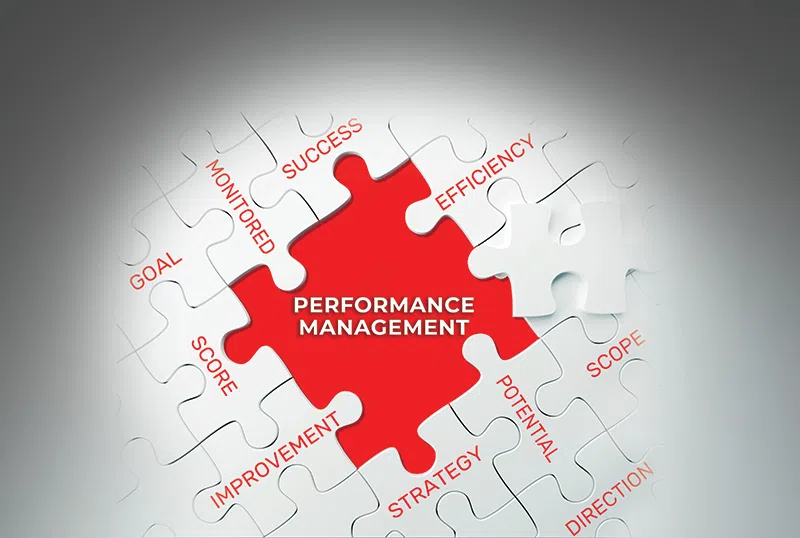Building trust and accountability requires standards, attention, and keeping your cool.
Oftentimes, it seems life would be great, if it weren’t for other people! Yet, it’s through relationships with others that we as business leaders obtain the greatest rewards. You and your employees spend many hours at your company, so getting along and working productively with colleagues is important to everyone.
Unfortunately, many employees experience high levels of stress when team members argue, give each other the silent treatment, or expect one person to do all the work. Poor economic conditions also increase stress at work as employees become more concerned about the future.
How can you encourage employees to get along and create successful teams? Respect and trust are two essential elements for building relationships in the office and beyond. Relationships are built over time and begin with mutual respect. Gradually trust begins to build, too. You don’t have to be a close friend with everyone in your company, but you do need to always practice professionalism and show each person respect.
Here are some guidelines to facilitate accountability and build trust among your team:
1. Define duties with teamwork in mind: Understand that 80% of a job’s responsibilities should come from a defined job description, but 20% of that employee’s time should be reserved for unspecified-butessential work that supports other members of the team and serves customers. Create an atmosphere where everyone bends over backwards to help others when the goal is customer satisfaction. A successful, trusted, and well-respected team member uses words such as absolutely or certainly when asked for help. Tell employees that part of their jobs is to look for things that need to be done and do them without being asked. This is the true definition of teamwork.
2. Be clear with prospective employees during the interview process. What are your expectations? Hold your existing employees and new hires to consistent standards, outlined in your policy manual. True teamwork demands that all employees are held to the same standards.
3. Define your expectations in an office policy manual. A personnel policy and office manual should cover individual and team responsibilities. If you don’t already have one, or if you have one that needs to be updated, be sure it includes these items:
• Job description
• Office and working hours
• Leave time
• Professional appearance, including body piercing, tattoos, and hair color
• Salary
• Other benefits
• Outside employment
• Probationary periods
• Performance reviews
• Absenteeism and tardiness
• Reprimand policy
• Discipline • Termination
• Leave of absence: disability, maternity/ paternity, bereavement, jury duty
• Sick leave/well pay bonus
• Holidays
• Personal days
• Inclement weather
• Personal phone calls
• Smoking
• Internet and cell phone usage
Check with your attorney on your individual state hiring/employment laws and craft your office manual accordingly. Be aware, however, that more important than defining your expectations: You need to be consistent in holding all employees to the same standard, or else you will create an atmosphere of favoritism.
4. Determine time commitments and plan adequately for each task. It is not fair to assign or accept a responsibility and then have no time to accomplish the task. Be realistic about the timeframe, and make sure your team members are aware of the deadlines for each project they take on.
5. Don’t overload your staff with too many commitments or too many interruptions. They will get discouraged and burned out. Instead, focus on delegating one task at a time, communicating the objective and timeframe clearly.
6. Follow through by putting a note on your calendar to check on progress of tasks. If you don’t check on progress, the task may not be accomplished. Find out how the project is progressing and show interest. Ask questions about the task, and offer your advice and help if needed. Recognize your employee for taking on the responsibility. It is discouraging for a team member to work hard and not receive recognition for a job well done.
7. Avoid showing favoritism toward specific team members. To build trust and accountability, businesses need consistent leadership. One way is to have effective team meetings on a regular basis for feedback and input on projects. With team meetings, allow your staff members the opportunity to volunteer for special tasks and projects. Remember, it’s impossible to build trust if one person is favored over others. Ask yourself: Do your staff members believe they are treated fairly, without prejudice? Do some feel excluded from the decisionmaking process? Does one person “do it all?” When there is no accountability, oftentimes one person will pick up the slack and take on too many responsibilities.
8. Encourage your team members to stand up and lead! Ask them about their concerns and the collective concerns of the team. Often, teams express concerns about drama in the office, other team members making personal calls during business hours, and team members bringing personal issues from home to work. Other concerns often involve not enough training on new systems, negativity in the office or people, and not taking responsibility. Do what you can to resolve these issues before they become areas of contention or conflict. This means as a leader, you need to step in and take action if a team member is not being responsible or supportive of their fellow team members.
9. Open the lines of communication by having an opendoor policy. Know the concerns of your team and deal with them head on. Ignoring your staff ’s concerns will not make them go away. Be positive in your approach and dependable in your attitude. Do not lose your temper. Instead, be reasonable and predictable. If you respond inappropriately, whether out of anger or insult, your team will remember the 10% of the time that you were out of control, not the 90% of the time that you weren’t.
10. Ask your team members to fully support one another. To do this, begin a team meeting session by asking your staff to define the qualities of teamwork that impress them. Ask them to think about someone they’ve known in the past or present who represents a true team player: What are the attributes of this person?
Often you’ll hear: Consistency, fairness, general cheerfulness, flexibility, positivism, and the willingness to change.
Then tell each person to ask themselves: How do I rate in these categories?
By following these steps and increasing the accountability of your office staff, you create trust and respect in the workplace. With these changes, your sense of teamwork and trust will grow, while stress and conflict will decrease.
Rhonda Savage is a professional speaker and CEO for a well-known management and consulting business. As past president of the Washington State Dental Association, she is active in organized dentistry and has been in private practice for more than 16 years. For more information on her speaking, visit www.DentalManagementU.com, or e-mail Rhonda@milesandassociates.net.




